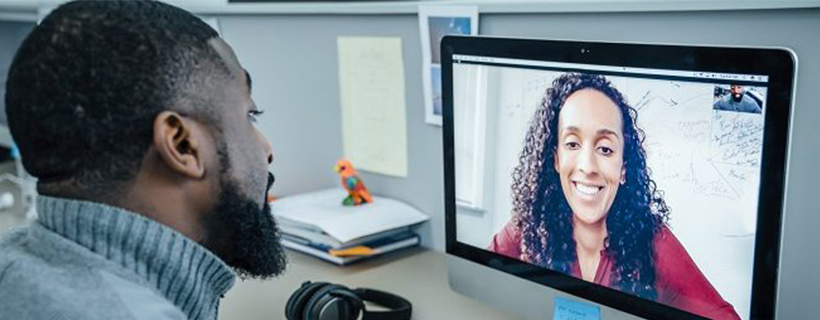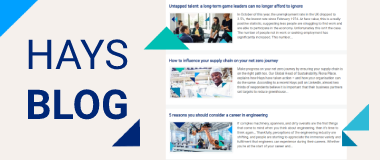How to interview a candidate who will be working remotely full time

But before we dive into the detail here, let’s understand what exactly is meant by remote working, and what has led to its rise in popularity. Then will we continue with:
What has led to the rise in remote working?
What are the benefits of remote working?
Allowing remote working also provides access to a far wider talent pool – increasing your ability to access to in-demand skills. The benefit of remote working could help you attract top talent, for example, almost 70 per cent of Millennials – who will make up half of the entire workforce within the next two years – reported that they would trade other, more traditional workplace benefits in return for flexible working options. According to Matt Mullenweg, co-founder of WordPress, Millennials are set to get just what they want – in a recent Ted Talk, be predicted that 90% of the world’s most influential companies would be operating this way within the next two decades.
The benefits of remote working are clear to see from the remote workers perspective too – feeling trusted, valued and appreciated, with more flexibility and autonomy in their role. Unsurprisingly, then, Owl Labs’ found that remote workers felt much happier, and more productive, than those who worked in the office full time. Even one day of remote work per month was found to increase happiness and productivity by an astonishing 24 per cent.
The challenges of remote working
Despite the substantial benefits of remote working, there are still potential pitfalls involved for both employer and employee, which both sides should be aware of. Breakdowns in both communication and collaborative working can still occur, simply by having an individual, or several team members, away from the rest of the business.
Remote workers can struggle to fit in with the culture of the workplace, suffer from loneliness and burnout, experience problems being consistently engaged with their work, and even come to feel shunned and left out.
Similarly, employees who don’t work remotely could come to feel undervalued, knowing that other individuals have been rewarded with this responsibility. In the TedTalk I mentioned above, Matt Mullenweg explained how he has acknowledged this problem in his own business. He revealed that he doesn’t actually describe remote workers as ‘remote’, as this implies that some employees are essential while others are not, instead he uses the word ‘distributed’.
So, regardless of what we call it, remote working certainly isn’t for everyone and for every organisation – which is why carefully interviewing candidates who have applied to work this way is so important.
Traits of effective remote workers
Essentially, the trust that you place in your remote employees needs to be returned in the form of results. An article published by Forbes outlines 10 essential traits that you should be able to identify in the right individual, which will help you to decide whether they can deliver what you expect of them. The ideal candidate should be:
- Someone who values results over process
- A self-starter
- Able to complete a test project
- Both punctual and responsive
- Motivated by something larger than themselves
- A natural problem solver
- Able to demonstrate attention for detail and the ability to track their KPIs
- In possession of a strong, technical aptitude
- Experienced in some form of remote work already
- Focused on growth
The Owl Labs report also found that full-time remote workers were twice as likely to be individual contributors, as opposed to people managers, so this is another quality you could look for while interviewing candidates for the role.
By the very nature of how and where they will work, you may never meet the candidate, not even during the interview process. In these scenarios, interviews by telephone, or video interviews are often used, allowing the interviewer to assess the candidate’s communication skills, body language and ability to engage with others. A video interview can help you to assess how comfortable they are when using technology, which could indicate how effectively they are likely to use it when working with the rest of your team.
Interview questions to ask remote workers
The interview needs to allow you to assess if the candidate does indeed have the right traits to work effectively, remotely. Focusing on goals, experiences, problem solving abilities, and communications skills, the right questions could lead to very telling answers from the candidate.
So, below, I’ve plotted out some suggested interview questions, which I think will help you effectively assess a candidate who will be working remotely, 100% of the time:
Do you have experience of working remotely?
This is crucial, as there’s no guarantee that someone without experience will be suited to working this way. If they haven’t, what are their intentions? How does working remotely fit with their goals, and how are they suited to working this way?
What do you like/think you’ll like about working remotely, and what led you to apply for a full-time remote working role?
Here, you’ll be able to ascertain what they value most. It will give you an indication of how thoroughly they have thought through the prospect of working remotely, and how it will complement their working style.
How do you intend to collaborate with colleagues when working remotely?
Can you tell me about how you’ve done this in the past? Their answer here will give you clues as to how much they value collaboration and the skills they have to do this effectively when working remotely.
What has working remotely taught you about how you work most effectively?
The candidate should be able to reflect on what they’ve learned from working remotely, and how it’s helped them to develop. They should be able to tell you, for example, which part of the day are they most productive, or how they have adapted certain skills to working away from others.
Which online collaboration tools do you have experience of using?
It’s important the candidate feels at home when using new technology. They should be able to use their skills and intuition to get themselves accustomed to any new platforms your business may be using, and use these to effectively, and regularly communicate with colleagues.
Do you foresee any challenges with working remotely, and how do you plan to tackle these?
Given the pros and cons of working remotely, they should be able to identify these, and prove that they can anticipate and solve foreseeable problems. For example, one challenge they foresee could be feeling disconnected to the business. In their answer, they should be able explain to you how they would proactively tackle this.
Do you have sufficient office space at home?
This one sound obvious, but it is absolutely crucial that the remote worker is able to work safely, comfortably and productively at home.
Can you tell me an example of when you managed a project from start to finish?
This question enables you to assess the candidate’s problem-solving and communication skills, responsiveness, and ability as a consistently motivated self-starter – all qualities of an effective remote worker.
How do you focus and remain productive when working remotely, but still maintain a positive work-life balance?
If the candidate can work effectively remotely, they should be able to explain how they stay focused, hit their targets and avoid overworking, providing you with practical, real-life examples.
How do you deal with miscommunication or conflict, and can you give me an example of doing so?
How calmly and practically the candidate handles conflict could be key to their success in the future when working remotely. As miscommunication can be more common, without face-to-face engagement, they should be able to easily explain to you how they resolve such instances.
How do you get to know new members of your remote team?
How the candidate answers this question indicates how effectively they communicate, engage with others and learn how to work collaboratively, even from a distance. Their answer will also give you a clue as to how highly they value team work and the development of professional relationships.
Is there anything you need from me (your boss) in order to work remotely?
If the candidate is good to go, great. But if they do identify anything they need before getting started, it’s better to find out right now and get everything in place.
The questions above should help you to ascertain which candidates are suited to working remotely, and which possibly are not.
Although this method of working is set to increase over the coming years, getting the correct person in place now is essential. After all, as businesses and working practices continue to evolve, these individuals could become the benchmark for future candidates, and help you to develop your remote-working strategies, policies, and targets over time.
The ultimate proof of their suitability will be the standard of their work when in the job, but by approaching the interview in the right way, you’ll stand a good chance of identifying the right people to add to your remote workforce.
More management tips for remote working:




